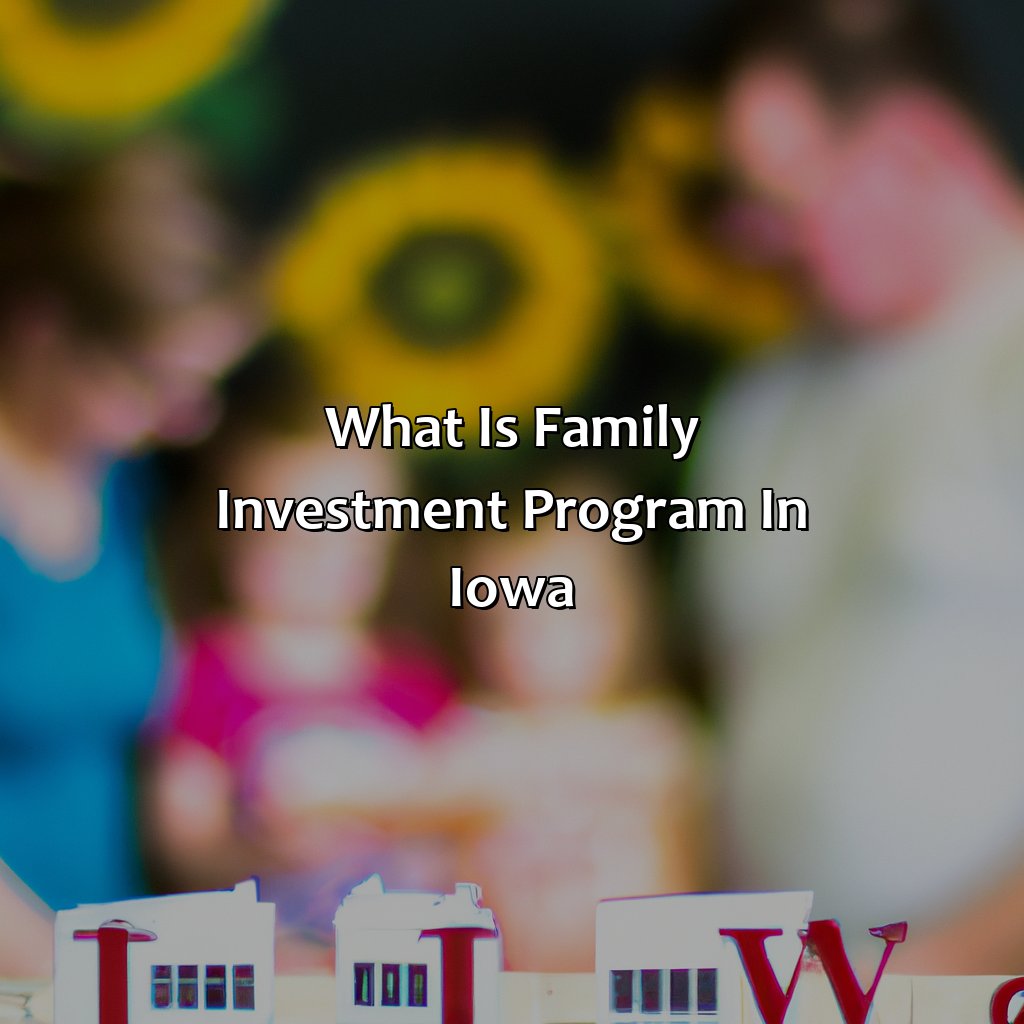What Is Family Investment Program In Iowa?
Key Takeaway:
- The Family Investment Program (FIP) in Iowa is a state program designed to provide financial support and resources to families who are struggling to make ends meet. It is available to eligible low-income families who meet certain requirements, such as residency and income level.
- To be eligible for the FIP, families must meet income and asset limits and other eligibility requirements. These requirements may vary depending on family size and other factors, and are subject to periodic review and adjustment.
- The FIP offers a variety of benefits and support services to eligible families, including cash assistance, food assistance, and access to job training and education programs. These benefits can help families achieve financial stability and improve their overall well-being.
Are you looking for ways to save and invest for your family’s future? The Iowa Family Investment Program (FIP) provides assistance and opportunities to families to help build a secure financial future. Discover how this program can benefit you and your loved ones.
Overview of the Family Investment Program (FIP) in Iowa
The Family Investment Program (FIP) in Iowa aims to assist low-income families in obtaining self-sufficiency by providing temporary cash assistance, food assistance, and employment services. Eligibility is based on the family’s income and resources. Once enrolled, participants must adhere to work requirements and job training. FIP also offers childcare and transportation assistance. To ensure success in the program, families are encouraged to create a solid financial plan, seek education or training opportunities, and utilize community resources. By working together, families can become self-sufficient and provide a stable foundation for their children.
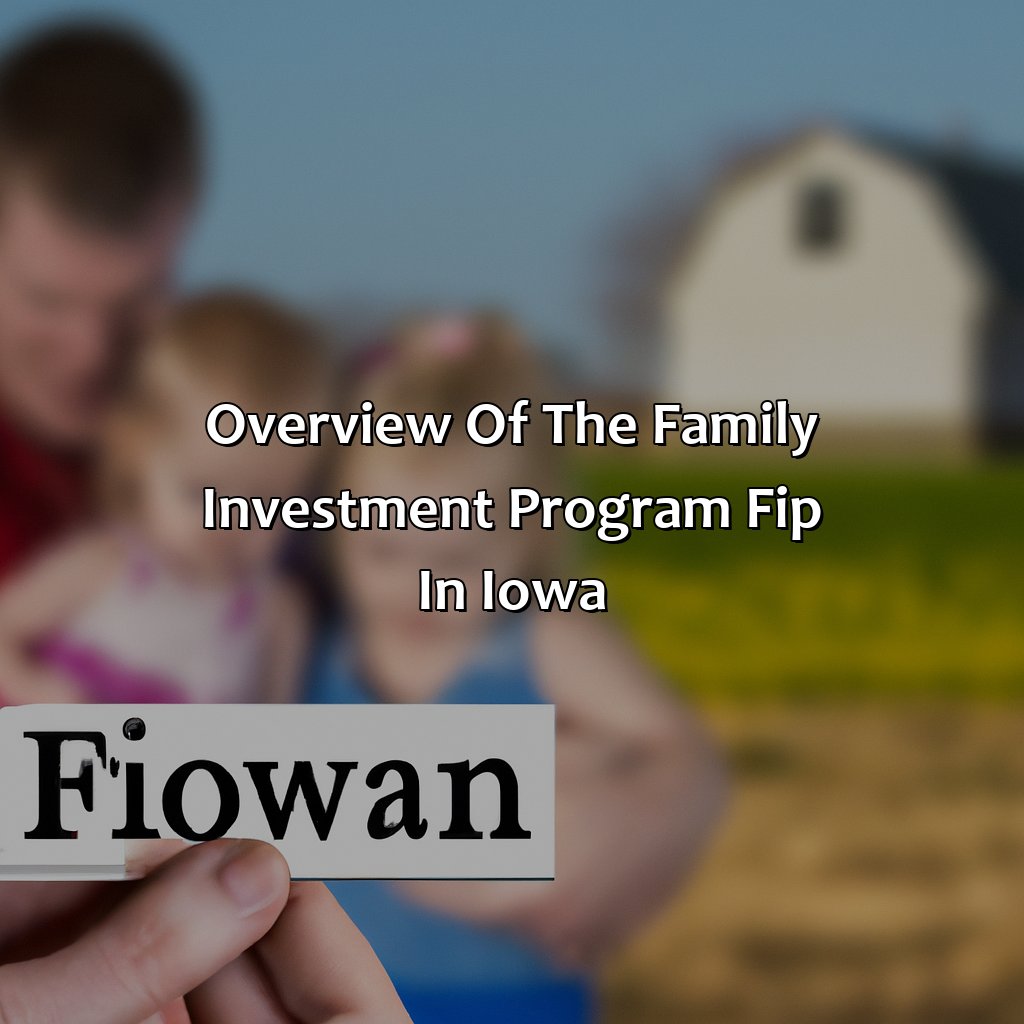
Image credits: retiregenz.com by Joel Washington
Eligibility Requirements for the FIP
FIP Eligibility Criteria
To qualify for the Family Investment Program (FIP), Iowa’s financial assistance program, applicants must meet certain eligibility requirements. To be eligible, a household must have a child under the age of 18, reside in Iowa, and meet income and asset limits. These limits vary depending on the household size and composition. Additionally, households must provide proof of their assets and income when applying for FIP.
The eligibility criteria for FIP also includes mandatory participation in employment and training activities, unless the household meets an exemption or waiver. Participation in these activities is expected to help individuals develop skills and find employment that is sustainable and sufficient to support their families.
It is important to note that satisfying the eligibility criteria does not guarantee FIP benefits; the amount of benefits received will depend on the household’s income, assets, and expenses. Applicants must also comply with ongoing program requirements to continue receiving FIP benefits.
To improve the chances of qualifying for FIP, it is recommended that applicants apply promptly and thoroughly document their assets and income. Additionally, participating in employment and training programs may increase eligibility and improve long-term financial stability.
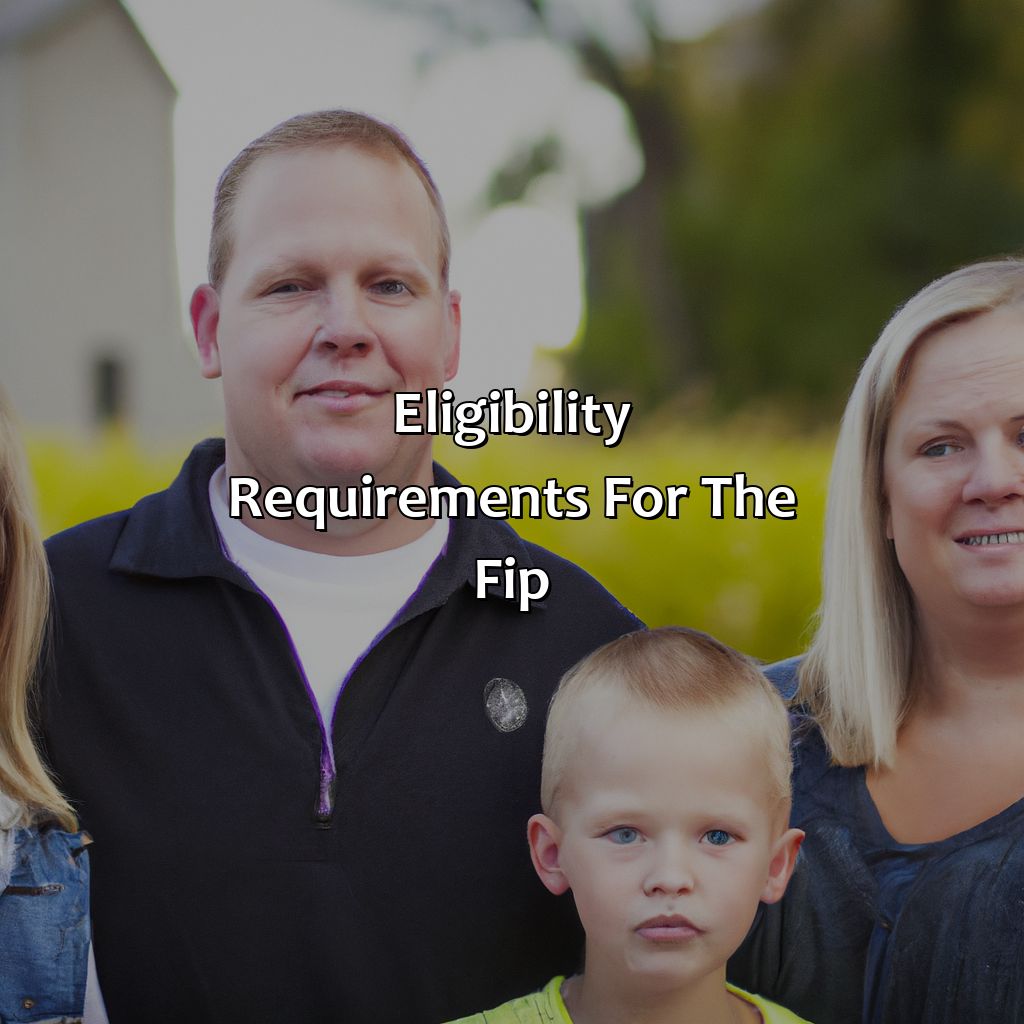
Image credits: retiregenz.com by David Duncun
Benefits Offered by the FIP
The FIP provides welfare benefits to low-income families in Iowa. These benefits equip families with the financial resources to meet their basic needs and give them an opportunity to move toward economic self-sufficiency.
The Benefits provided by the FIP are as follows:
- Cash Assistance: The FIP provides financial assistance to low-income families to improve their standard of living and help them meet their basic needs.
- Child Care Assistance: The FIP provides support for child care expenses, which enables parents to pursue education or employment opportunities.
- Food Assistance: The FIP provides food assistance through SNAP (Supplemental Nutrition Assistance Program) to assist families in meeting their nutritional needs.
- Health Care Assistance: The FIP provides health care assistance through Medicaid to ensure that families have access to quality medical care.
The FIP considers the unique circumstances of each family and tailors its services to meet their needs. For example, families with a disabled member may receive additional services to accommodate their needs. In addition, families may receive support to overcome barriers they face in finding employment, such as lack of education or training. The FIP also offers counseling and support services to empower families to become self-sufficient.
Pro Tip: Families receiving FIP benefits should take advantage of the services offered to help them achieve economic stability, such as job training and counseling programs.
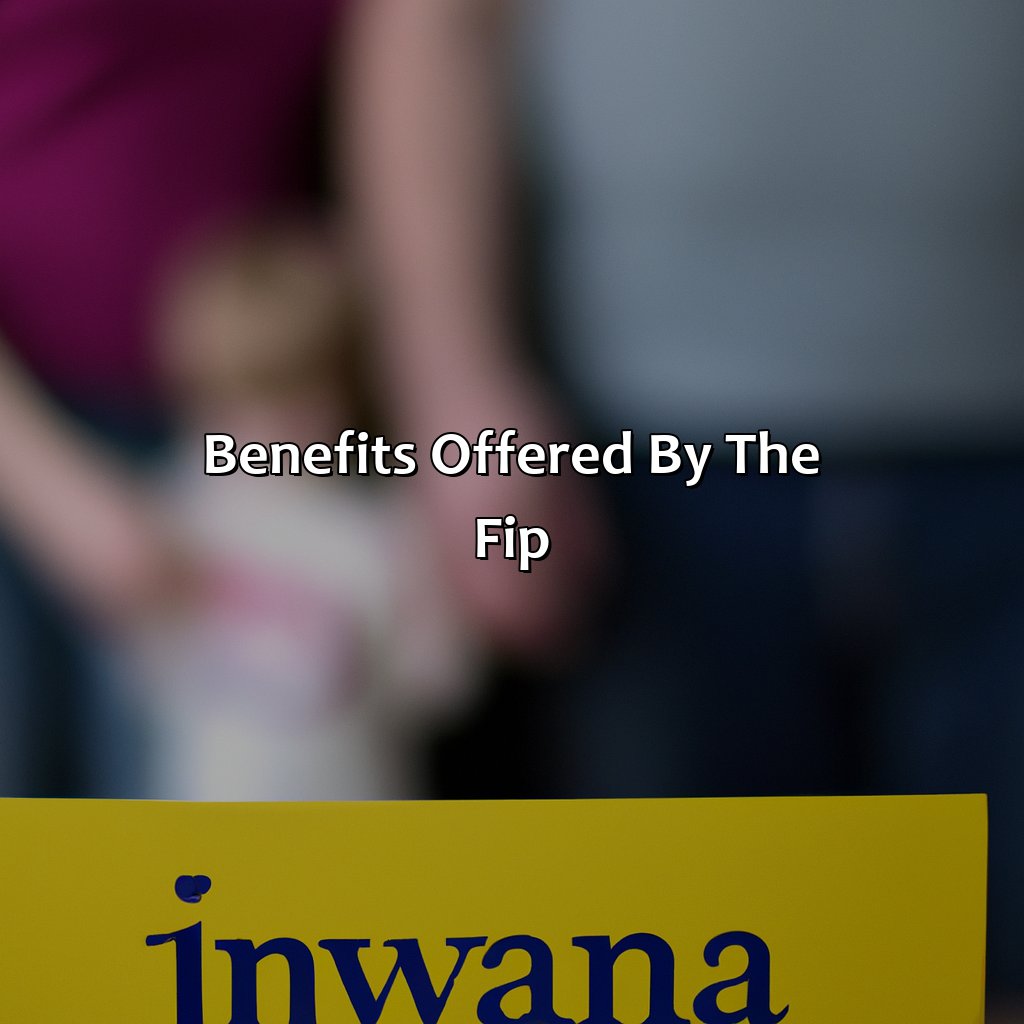
Image credits: retiregenz.com by James Jones
How to Apply for the FIP
To start with, if you are interested in applying for the Family Investment Program (FIP), you should be aware of the process involved in order to receive support.
Here’s a quick 4-step guide on how to apply for the FIP:
- Go to the Iowa Department of Human Services website and download the application form
- Fill in your personal and financial details carefully and accurately
- Submit the completed form along with any required supporting documents
- Wait for a decision on your application from the department
It is important to note that the eligibility criteria for the FIP are strict, and the application process can take several weeks to complete. It is crucial to ensure that all the information provided on the application form is correct and up-to-date to avoid any delays or rejection.
A true fact about FIP is that it is a federally funded program that provides financial assistance to low-income families to meet their basic needs. (Source: Iowa Department of Human Services)
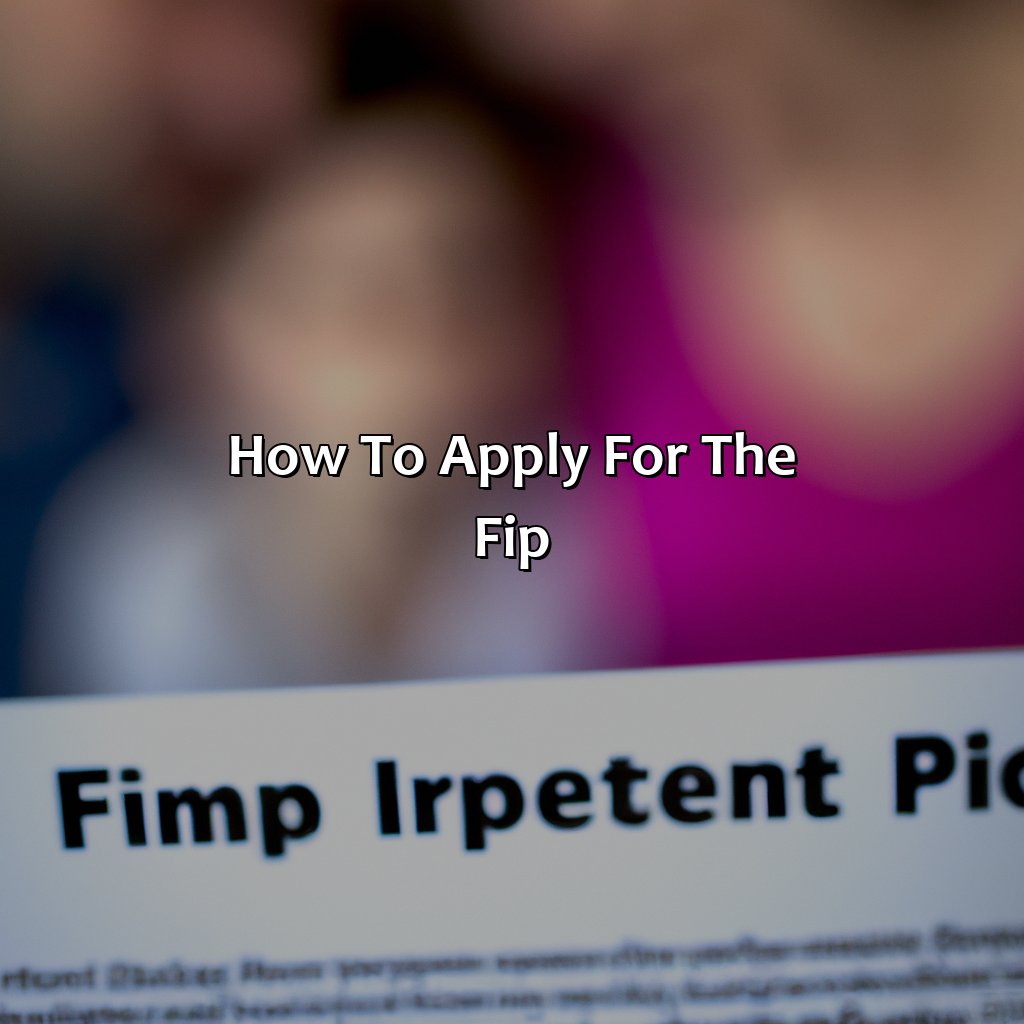
Image credits: retiregenz.com by Harry Duncun
FIP Work Requirements and Exemptions
FIP Work Expectations and Exemptions
Eligibility for the Family Investment Program (FIP) requires recipients to have work expectations, usually for a minimum of 20 hours per week. There are instances where recipients may be exempted from work requirements.
Recipients with a medical condition, a disability, or a lack of adequate childcare can seek exemption. Another possible exemption is for those who are receiving self-sufficiency services from FIP.
It is possible for FIP to waive the work requirements temporarily in the event of a family crisis or for a recipient who is in school or job training. Recipients should contact their FIP case worker to request an exemption and to understand their responsibilities as a recipient.
A woman who was a victim of domestic violence was able to receive an exemption from work requirements due to her condition. This allowed her to focus on healing while still receiving financial assistance from FIP.
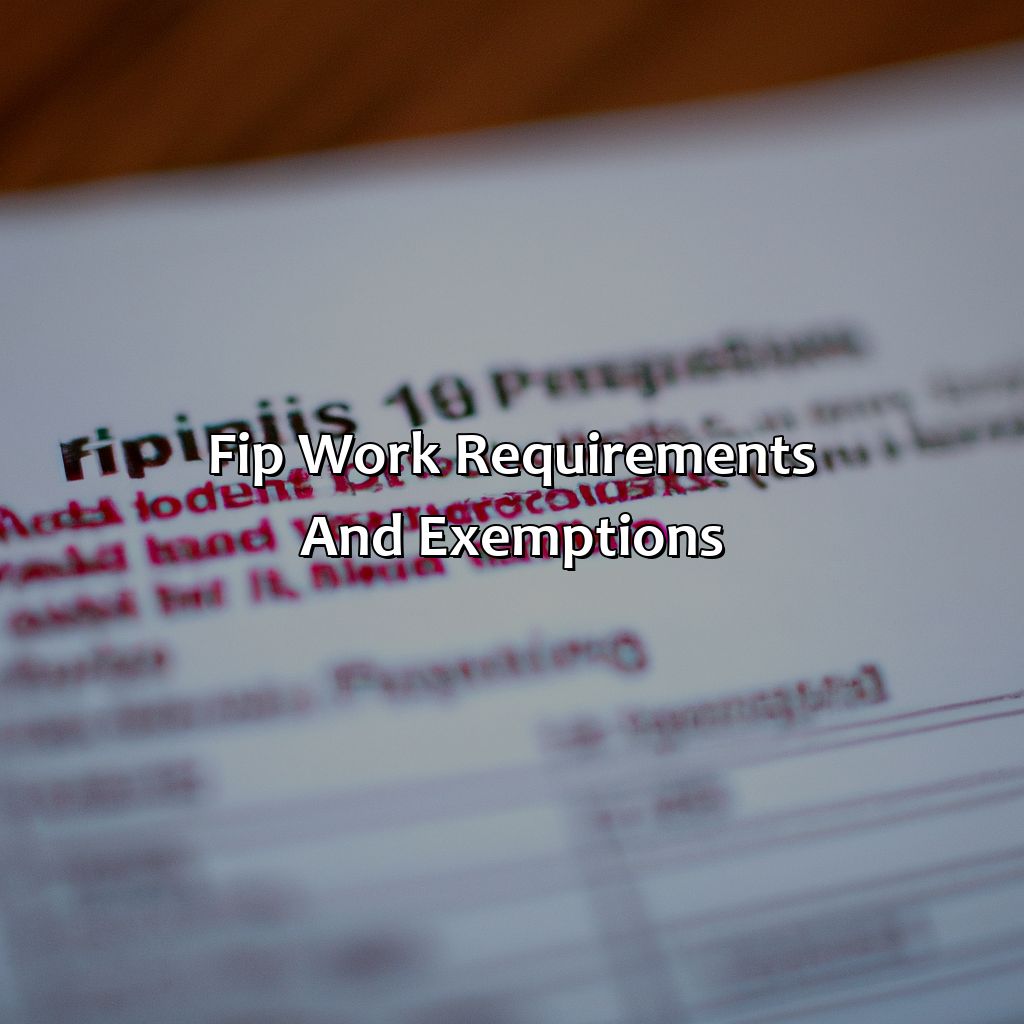
Image credits: retiregenz.com by David Jones
FIP Time Limits and Renewals
FIP Program Time Limits and Extension Guidelines
FIP program provides temporary cash assistance to eligible low-income families in Iowa. Families can receive assistance for up to 60 months, including extensions, as long as they meet the eligibility criteria. An extension may be granted if the family is still in need and has complied with all program requirements.
To receive a renewal, applicants must attend an interview with their caseworker, submit all required documentation, and provide updated income and asset information. If found eligible, a new 12-month eligibility period will start.
It’s worth noting that FIP time limits do not apply to families that include individuals with disabilities, including children, or those caring for individuals with disabilities. These families may continue receiving assistance as long as they meet the eligibility criteria.
In the past, there have been debates about the effectiveness of FIP time limits in reducing poverty and increasing self-sufficiency. However, supporters argue that the program encourages personal responsibility and provides temporary relief for families facing difficult times.
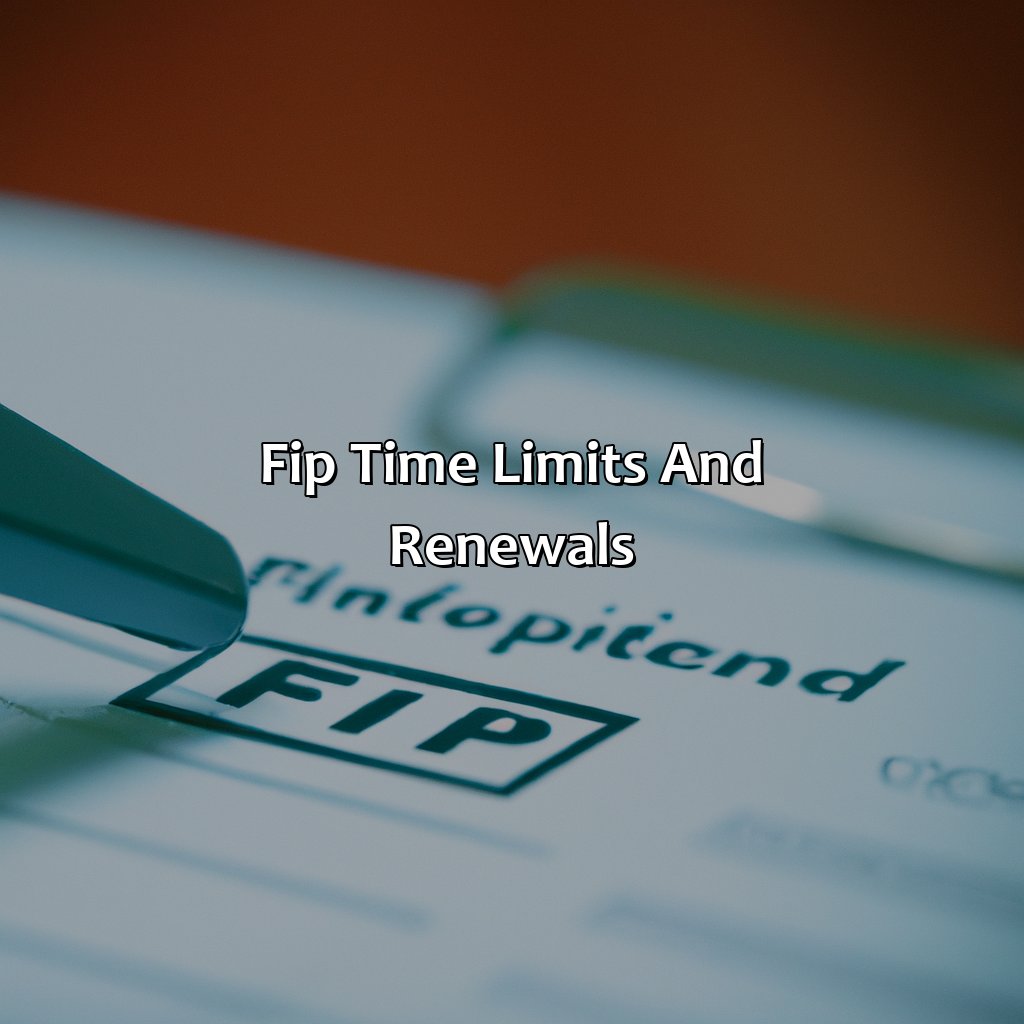
Image credits: retiregenz.com by Harry Arnold
FIP Resources and Support Services
FIP Resources and Support Services refer to the assistance and aid provided to individuals enrolled in Iowa’s Family Investment Program. Here are five points to elaborate on this topic:
- Education and Training: FIP participants are given opportunities to improve their education and acquire skills through training programs.
- Health Care Services: FIP enrollees have access to health care services, including wellness checks, immunizations, and medical treatment.
- Child Care Assistance: FIP provides child care assistance to parents who are working or participating in education and training.
- Food Assistance: FIP offers food assistance to families who are eligible through the Supplemental Nutrition Assistance Program (SNAP).
- Job Placement and Support: FIP helps participants in job placement, resume writing, and interview preparation.
It is important to note that FIP Resources and Support Services may differ based on eligibility, location, and other factors.
According to a report by the Iowa Department of Human Services, as of September 2021, there were 28,023 households enrolled in the Family Investment Program in Iowa.
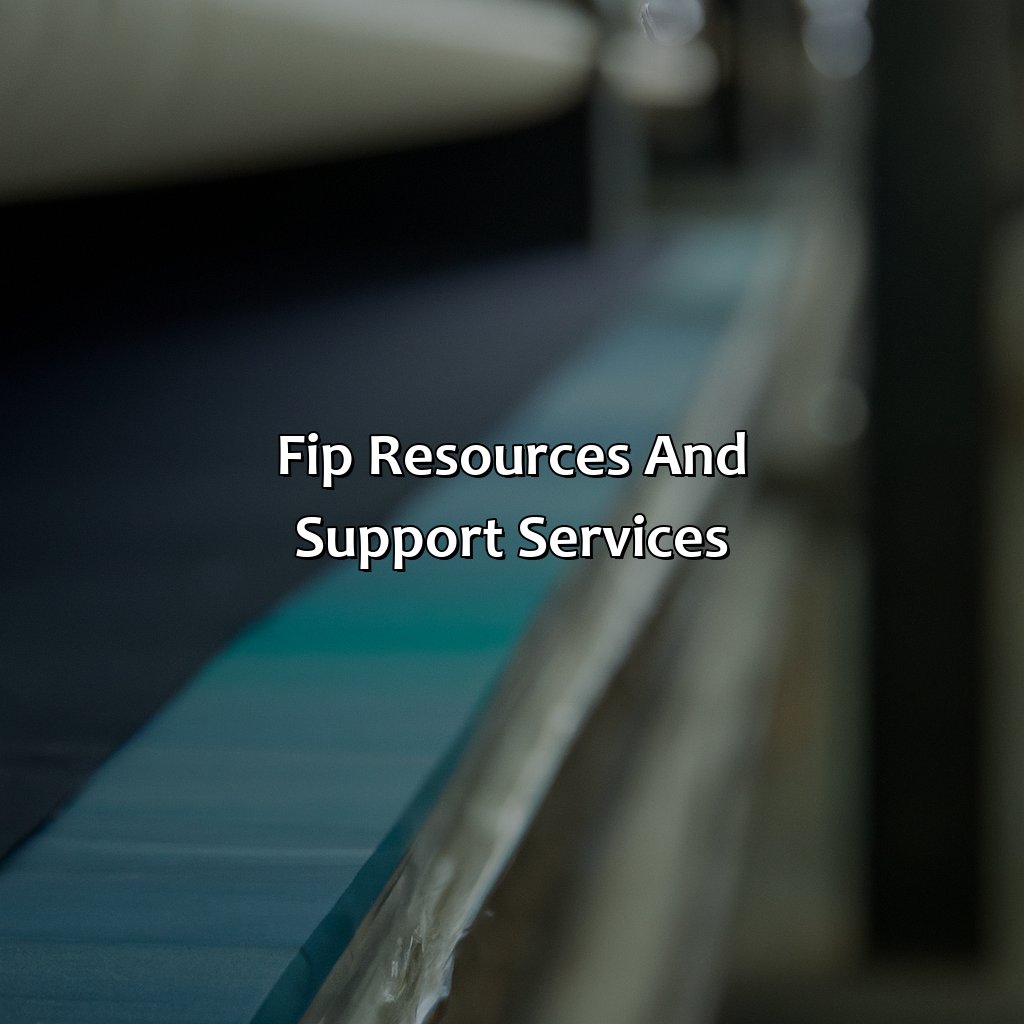
Image credits: retiregenz.com by Adam Woodhock
FIP Program Improvements and Updates
The Family Investment Program in Iowa has undergone recent updates and improvements to ensure better support for families in need. Changes have been made to eligibility requirements, work participation, and benefit amounts. The program now offers more opportunities for education and skill-building, as well as increased access to support services. Additionally, updates have been made to program administration to streamline the application process and communication with participants. These changes aim to ensure families receive the assistance and resources they need to become self-sufficient.
According to the Iowa Department of Human Services, FIP served 16,042 households in January 2021, demonstrating the program’s impact on Iowa families.
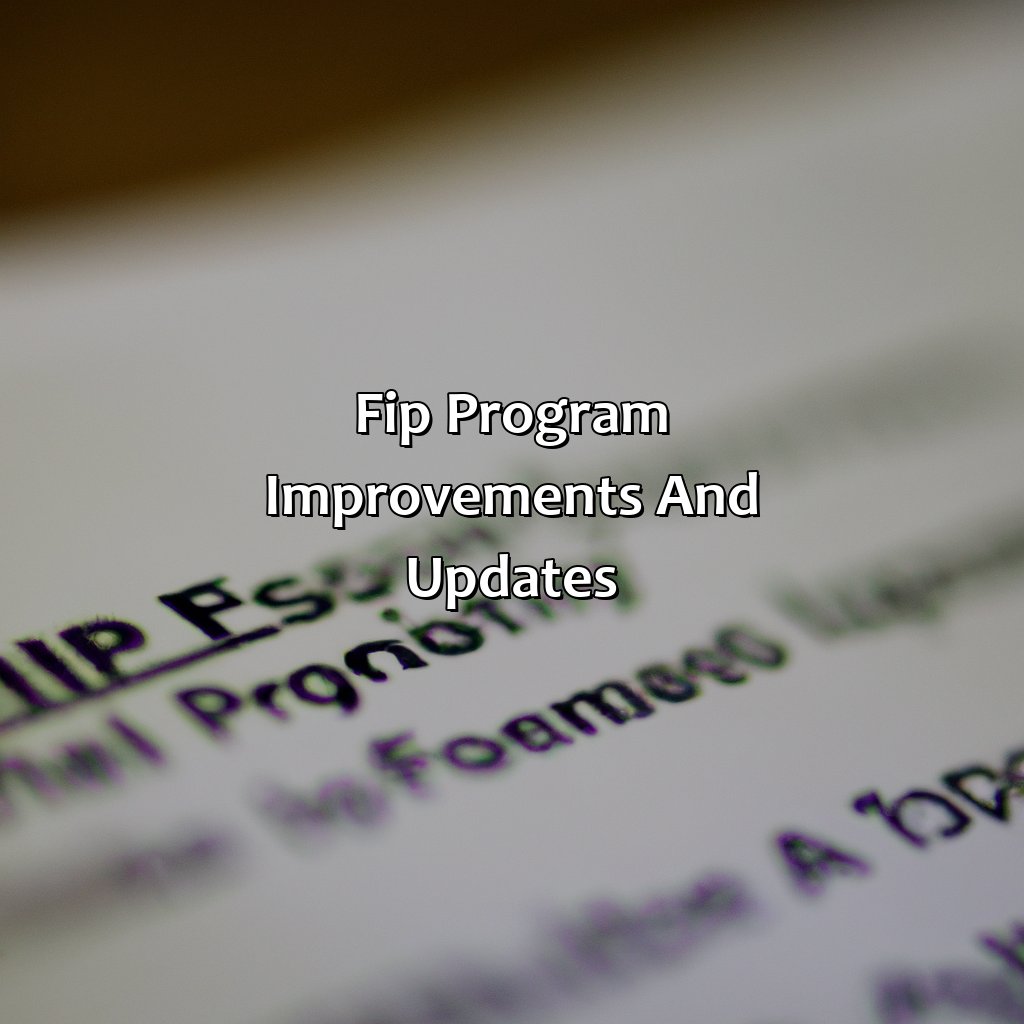
Image credits: retiregenz.com by Joel Woodhock
Five Facts About the Family Investment Program in Iowa:
- ✅ The Family Investment Program (FIP) in Iowa provides temporary cash assistance to eligible low-income families with children. (Source: Iowa Department of Human Services)
- ✅ The program aims to help families become self-sufficient by providing support, resources, and job training opportunities. (Source: Iowa Department of Human Services)
- ✅ To be eligible for FIP, families must meet certain income and asset requirements and have a child under the age of 18 living with them. (Source: Iowa Department of Human Services)
- ✅ FIP recipients are required to participate in work activities or education and training programs to receive benefits. (Source: Iowa Department of Human Services)
- ✅ The maximum monthly benefit for a family of four through FIP is $793, but actual benefits are based on each family’s income and circumstances. (Source: Iowa Department of Human Services)
FAQs about What Is Family Investment Program In Iowa?
What is Family Investment Program in Iowa?
Family Investment Program (FIP) in Iowa is a cash assistance program that provides financial assistance to low-income families with children under the age of 18. The program is designed to help families become self-sufficient by promoting work and family stability.
Who is eligible for Family Investment Program in Iowa?
Eligibility for FIP in Iowa is based on family size, income, and assets. Families with children under the age of 18, who have income below 150% of the federal poverty guidelines, and who meet other program requirements may be eligible for FIP.
What services are included in Family Investment Program in Iowa?
In addition to cash assistance, FIP in Iowa also provides case management services, job training and education, and other supportive services to help families achieve self-sufficiency.
How much financial assistance can I receive through Family Investment Program in Iowa?
The amount of financial assistance a family can receive through FIP in Iowa depends on family size, income, and assets. The maximum monthly benefit for a family of three is currently $792.
How long can I receive Family Investment Program in Iowa?
The length of time a family can receive FIP in Iowa depends on their individual circumstances, but in general, families are limited to a total of 60 months (or 5 years) of assistance.
Where can I apply for Family Investment Program in Iowa?
Applications for FIP in Iowa can be submitted online, in person at a Department of Human Services office, or by mail. To apply, visit the Iowa Department of Human Services website or contact your local DHS office for more information.
